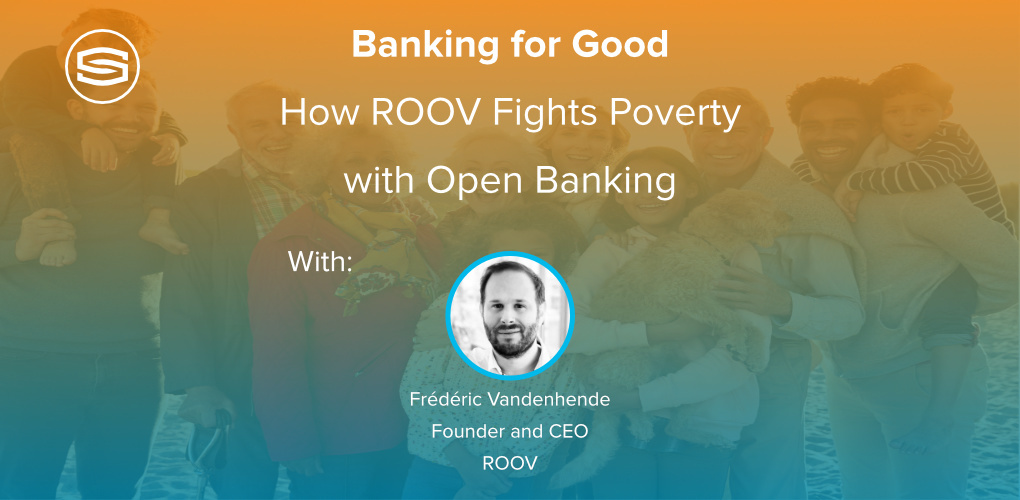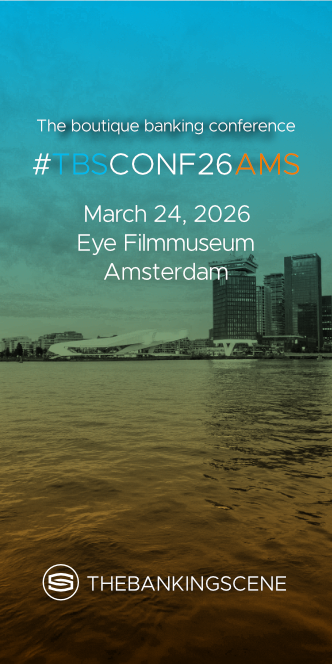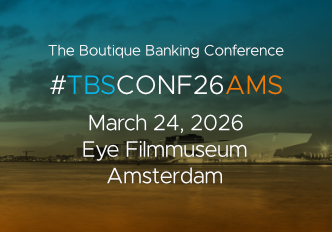
Insights & Opinions
How ROOV Fights Poverty with Open Banking
Tue, 15 Nov 2022


Open banking as a source for good. We hear it often at conferences, but in practice, the conversation rarely goes any further than improved credit checks or better insights on personal finance etc.…
On November 10, we invited Frédéric Vandenhende, Founder and CEO of ROOV, who set up his company with one mission: “Creating financial wellbeing”. Based on a bad personal experience in the family on how destructive money, or the lack of it, can be, he decided that if he could help people with financial problems, making their lives better, he would do that.
From a previous participation at The Banking Scene Afterwork, we learned that they built an app to help people to manage their finances better, providing a better financial overview, proactive tips and tricks and a safe for valuable documents like contracts and guarantees.
They used the mechanics of PSD2 and Open Banking to build a solution, including the required licences at the National Bank of Belgium. But they also allow to add much more documents and data points so that when people get, for example, an invoice from their mobile provider, the app warns the user if it isn’t paid. If their AI detects a big payment in, say 6 months for car insurance, the app would suggest saving a smaller fixed amount the months before, etc…
A few months after the go-live, they evaluated their business. They learned that people in financial difficulties often couldn’t pay for an app to improve their financial situation. This contrasted sharply with an acquisition cost of €132 per new client.
They pivoted their business by adding B2B services.
Frédéric: “Belgium counts 330.000 people with financial problems, of which 80.000 are in a collective debt settlement. These people have a lawyer to manage their money, the debt mediator. These debt mediators open an account at their preferred bank where the consumer's salary is transferred, and that debt mediator will transfer part of that to the consumer’s account.”
With that knowledge, they extended their platform to service social welfare agencies, social housing companies and lawyers in debt mediation.
Open Banking at the Service of Debt Mediators
The idea is to help professional organisations reduce the administration through automation and Account Information Services (AIS) on the one hand and to build more transparency for the client on the other. This transparency is also the main reason to use the app and to share more details with the debt mediator.
ROOV built a solution to help the client oversee both his account, managed by the debt mediator and his personal account. The invoice that the client uploaded in his app can be shared with the debt mediator instead of sending them all on paper. This allows for a real-time evaluation by the debt mediator to see which invoice they will pay and which is to be paid by the client.
This debt mediator gets one platform to manage all his clients instead of dealing with each account separately.
On top of that, notifications will notify both the client and debt mediator in case of a change in the budget patterns on both accounts for more proactive advice and remediation.
Frédéric: “Debt mediators used to work reactively. When problems occurred, they would use a fire extinguisher to extinguish the fire. With our application, we give tools to make the house fireproof”.
At the end of each year, the platform will make a mandatory report for court with a push on a button instead of what used to be a 45-minute administrative job.
So instead of charging the ones with financial problems, ROOV charges the ones assisting them, who are happy to pay for:
- Lower administrative costs to manage accounts
- Better service to their clients
- More trust from their clients, as they have an app with real-time information on their financial situation
Open Banking at the Service of Social Housing Companies and Welfare Agencies
Another segment at the social housing companies. Frédéric: “In Belgium, we have 250.000 houses in the public housing system, 170.000 on a waiting list. More than 15% of the people in public housing who are renting a house are not paying their rent. The cost of that goes to society.”
The ROOV platform proactively warns these companies when the renter cannot pay rent. That way, social workers can get in touch with people in financial difficulties much faster to avoid more significant problems.
Human contact is essential in this phase to make people with difficulties understand that getting help from someone else is not something to be ashamed of.
Frédéric: “These people need somebody who listens to their problems. They need that kind of human contact. With ROOV, we save professionals time to do what they really need: to listen and look for solutions instead of stupid administration.”
On top of that, ROOV has a direct channel with new users looking for financial wellbeing solutions before the problem seems unmanageable.
Another concrete partnership is the allocation of allocations for some people with financial difficulties through Welfare Agencies. People can now upload the required documents to accept the money instead of a cumbersome process of paper proof, validation, stamping, revalidation, and payment… Instead of waiting a minimum of 4-5 days to receive the money, people now get it a day later. This is a world of difference for some of these people.
Again, instead of charging the ones with financial problems, ROOV charges the ones assisting them, who are happy to pay for:
- Keeping up the pace of work, in times administrative talents are scarce on the labour market
- Lower administrative costs to manage accounts
- More time for human contact with people in need
- Better service to their clients
Open Banking at the Service of The People
In their mission to improve financial wellbeing, ROOV didn’t stop at lowering the financial burden of debt mediators. Frédéric: “The main thing we are creating is transparency and giving the people the help they need. We give professionals the time they need to help people better. The second thing is to make financial issues more discussable and open to everybody. It's okay if you have financial problems. It's not okay if you don't want to work toward a solution.”
Proactive financial education is so important, not just for individuals but for society as a whole. A ROOV team member calculated that the Belgian welfare system would be bankrupt within 10 years based on today's poverty growth figures.
Frédéric: “Inspired by Pavlov, we knew we could change people's behaviour by giving them an award.” So, they added gamification elements in the B2C app. They look for partnerships with organisations to earn prices for good financial behaviour.
Helping people understand how money works and how they behave with money is the first step to breaking personal patterns and thinking about a different relationship with money. That is the only way to a structurally financially healthier life.
Conclusion
So is ROOV making a change with open banking? I believe they absolutely do. By linking data from the PSD2 rails with other data sources and aggregating this into one platform, they reduce friction in the process, lower the administration cost and allow more proactive advice to support people's (future) financial problems.


